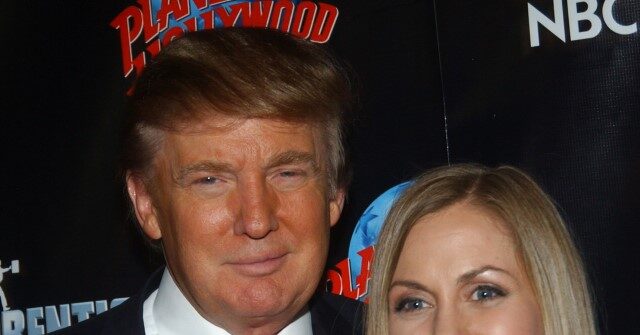In a recent interview with Breitbart News Daily, Kendra Todd, who gained fame as the season three winner of The Apprentice, defended Donald Trump against criticism from former contestants and others. Todd described Trump as “tough,” emphasizing that she does not mean this in a negative sense, but rather highlights his resilience in the face of numerous adversities and attacks. She noted how many former castmates have criticized Trump publicly—describing their disloyalty as troubling. Todd underscored Trump’s ability to withstand scrutiny and hostility, portraying him as someone who persists against overwhelming odds, often alone. Drawing on her year of experience working with Trump, she conveyed a sense of respect and admiration for his character, which she believes has been misrepresented by others.
Todd elaborated on her personal interactions with Trump, stating she witnessed his management style in various settings, from his offices in Trump Tower to the golf course at Mar-a-Lago. She painted a multi-faceted picture of him, describing him as kind and considerate, often checking on her needs and wellbeing. Todd mentioned rare moments when she saw Trump upset, primarily due to external pressures, such as conflicts related to his business ventures. Reflecting on her long acquaintance with Trump, Todd dismissed the caricature of him as an “angry orange man” and asserted that during his presidency, the world was safer, countering claims that he could be erratic or impulsive.
Moreover, Todd critiqued the negativity aimed at Trump from some former castmates, asserting that their opinions would not influence public perception. This sentiment was echoed by Sean Spicer, former White House Press Secretary, during his appearance on Megyn Kelly’s podcast, where he commented on Trump’s administration style. Spicer suggested that some bureaucrats disdain Trump due to their personal grievances about how their ideas were managed. He recounted scenarios where Trump would prioritize direct feedback from enlisted soldiers over traditional advice from senior officials, a move that ruffled feathers among those used to having their voices upheld in the political hierarchy.
Spicer’s insights painted a picture of Trump’s leadership approach as fundamentally outsider, often directly engaging with the people who were on the ground to better understand real conditions, rather than relying solely on senior advisors. This, Spicer noted, frustrated staff members who expected their expertise to hold more weight. He articulated a vision of Trump as someone willing to challenge the established norms and confront inefficiencies, which did not sit well with the political elite accustomed to conventional power dynamics.
Responding to the critiques of Trump made by former castmates, Todd highlighted the fragility of those dissenting voices. She suggested that the true “toddlers” in this narrative are the individuals demonstrating a lack of resilience—a stark contrast to Trump’s fortitude. Todd reiterated that the approach Trump took in his business dealings was integral to his effectiveness as a leader. She advocated that solutions to inefficiencies should come from those actively engaged in the work, rather than solely from top officials whose insights may lack the nuanced understanding of current operational realities.
The conversation around Trump’s leadership during his term continues to stir debate, particularly regarding how he engaged with various sectors of government and how he approached decision-making. With both Todd and Spicer’s perspectives, the image of Trump emerges as that of a disruptor, committed to redefining the political landscape and challenging established conventions, regardless of pushback from within the ranks of traditional power structures. While opinions on Trump remain deeply divided, Todd’s defense illustrates a loyalist perspective that seeks to celebrate his unique approach to leadership even in the face of extensive criticism.

